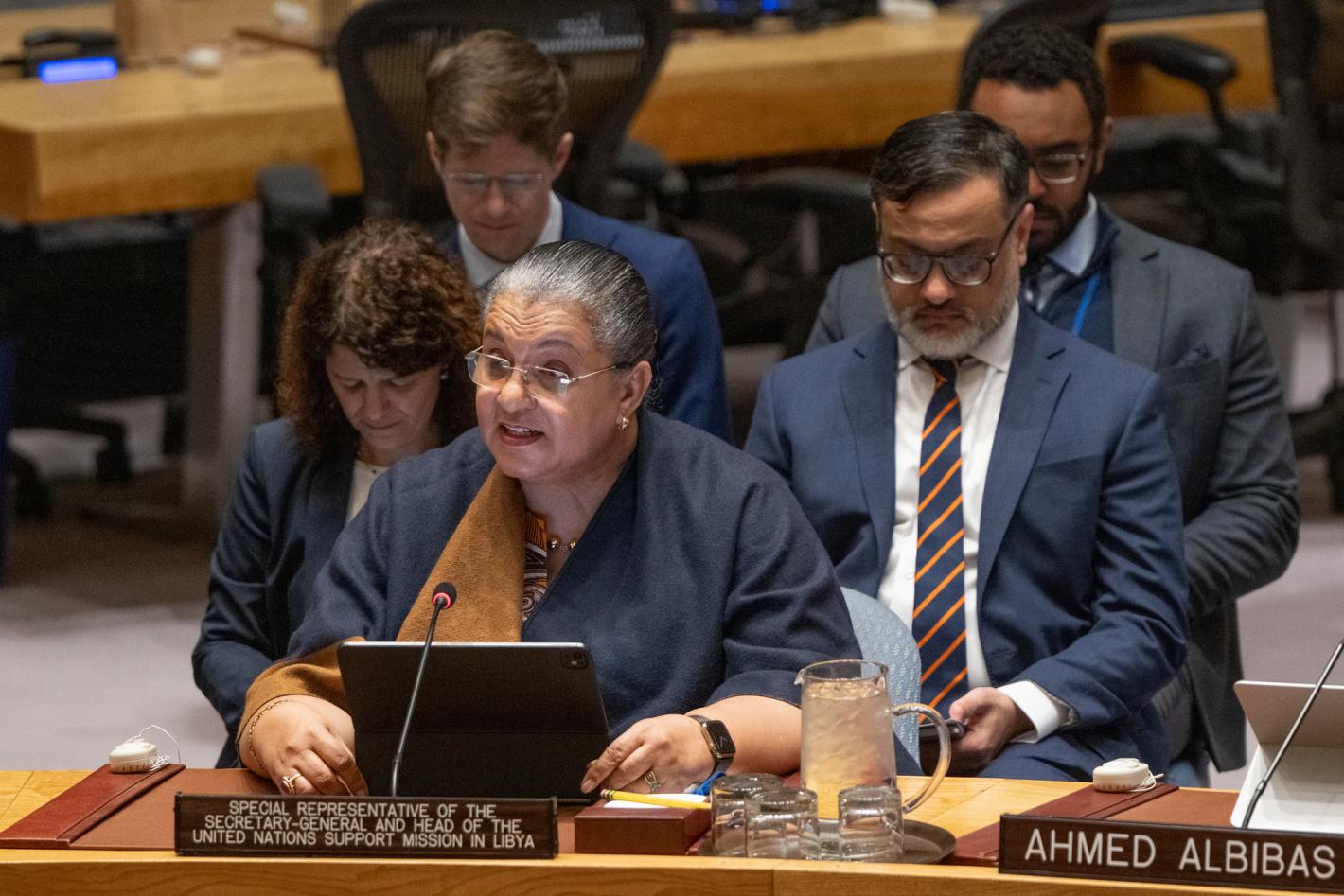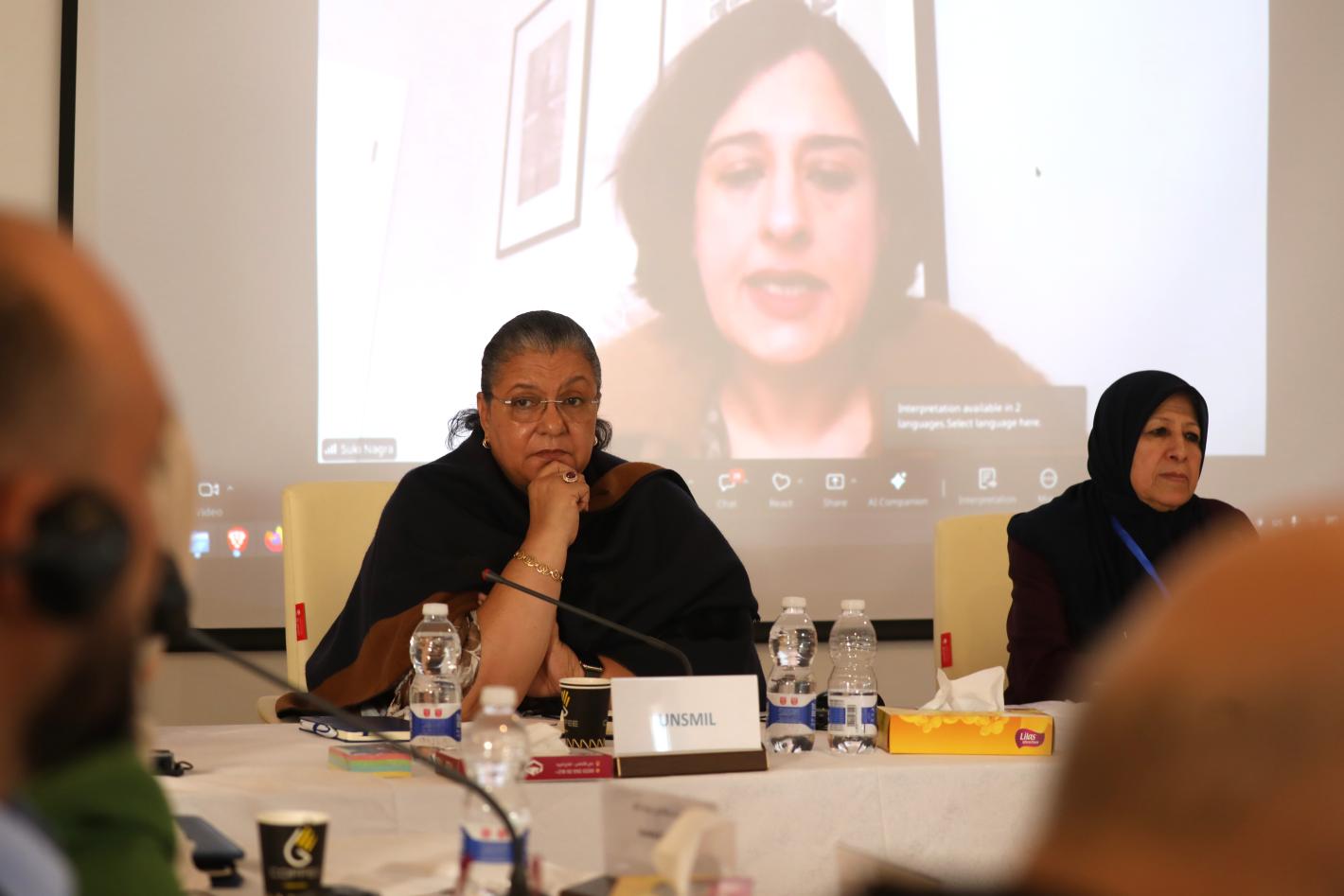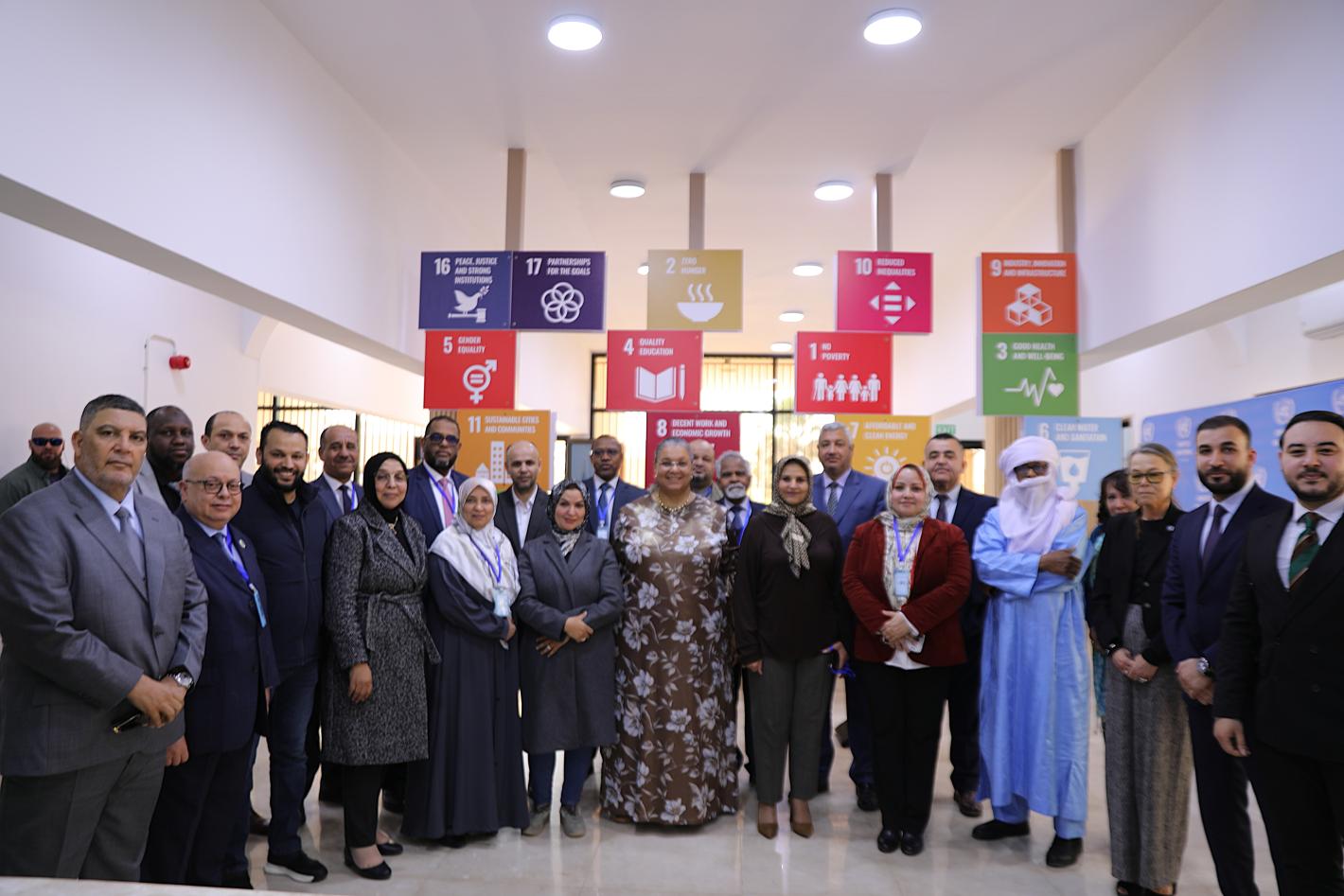During his first few weeks in Libya, Special Representative of the Secretary-General Abdoulaye Bathily made it a priority to sit down with civil society representatives, in particular with women from various backgrounds, to solicit their ideas on the path to sustainable security.
“Women in Libya are among the most negatively impacted by Libya’s continued lack of political stability, but they are marginalized from the conversation about solutions,” SRSG Bathily says. “We must do all we can to tap into women’s wisdom and amplify their ideas now and dismantle barriers to their political participation in the future.”
Just 5 out of 18 ministers in Libya’s Government of National Unity are women. Women account for just 15 percent of the country’s two legislative bodies, including 2 women in the House of Representatives and 20 women in the High Council of State out of 133 members.
As Libya works to rebuild, women activists are seizing the moment to push for increased social and political influence. But they face considerable challenges, including restrictions on women’s role in society, insecurity in the streets, and an increase in online harassment, hate speech and threats. Since 2014, multiple female political activists and government representatives have been physically attacked, including – among others – Salwas Bughaghis, a former member of the National Transitional Council who was murdered in 2014, and Member of Parliament Seham Sergewa, who was abducted in 2019 and whose whereabouts remain unknown.
Since arriving in Libya to lead the United Nations Support Mission in Libya on 14 October, SRSG Bathily has met with more than two dozen women from Al-Jufra, Benghazi, Misrata, Sebha and Tripoli, including candidates for parliamentary elections, professors, lawyers, research scientists, and women’s rights activists. During their initial conversations, SRSG Bathily requested they provide written proposals to address a variety of challenges ranging from the dispute over the executive, to disarmament, demobilization and reintegration (DDR), and women’s inclusion in reconciliation efforts.
SRSG Bathily conferred quietly with the women, listening as they aired their concerns about the proliferation of weapons, arbitrary arrests and detentions, the need for reconciliation and transitional justice – among other issues.
Dina Fazzani, a human rights researcher who met with the SRSG in Benghazi, observed that the SRSG’s decision to seek proposals from women is a good sign that he will prioritize human rights in his work, adding that it will be important for the SRSG to continue to be transparent to build trust with the community.
“The SRSG was realistic and seemed to understand Libyan needs,” said Omaima Alfaqi, head of the Aladsa Oganization for Election Observation and Development, who met with the UNSMIL head in Tripoli. “I left the meeting feeling very motivated.”
The SRSG’s work builds upon years of UN efforts in Libya to increase women’s participation in the political sphere in line with the Women, Peace and Security Agenda, which was established by Security Council Resolution 1325 in 2000. For example, UNSMIL supported women’s rights activists at the Libyan Political Dialogue Forum in 2021 to add an article to the country’s political roadmap that reserves 30 percent of leadership positions in the new government for women. UNSMIL continues to lobby for that standard to be met. To help increase safety for women in public and private spaces, the Mission is also working with national legal experts to draft the country’s first law addressing violence against women.
When women are allowed to join discussions about the country’s future, said Alfaqi, who is from Al Jufra, they are typically limited to support sectors that are traditionally seen as more feminine, such as healthcare, education or social welfare.
“Libyan culture limits women to certain roles and it takes a toll on women’s self-esteem,” she said. “There is so much social stigma around women seeking power. She may be shamed if she tries to step outside the mould. Libyan women care a lot for their reputation, so this is demotivating.”
Amina Megheirbi, a professor at Benghazi University who met with the SRSG, recounted facing resistance to her leadership in a human rights committee during her time as a member of parliament in 2012.
“Libyan women are capable of leading, but we are too often held back because of male dominance,” said Megheirbi, who also heads the nongovernmental organization Altawasul, which focuses on women’s and youth empowerment. “When we women have a chance, we shine.”






